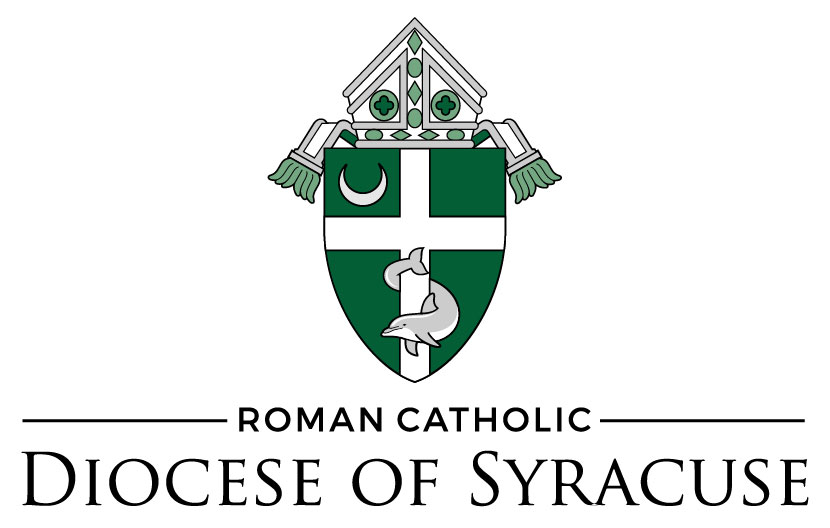Catholic Teaching on NFP
The Centrality of Marriage in God’s Plan
Theology of the Body Expert Christopher West explains:
“Sacred Scripture begins with the creation of man and woman in the image and likeness of God and concludes with a vision of the ‘wedding feast of the Lamb.’ Scripture speaks throughout of marriage and its ‘mystery,’ its institution and the meaning God has given it, its origin and its end, …the difficulties arising from sin, and its renewal ‘in the Lord.’”[7] Throughout the Old Testament, God’s love for his people is described as the love of a husband for his bride. In the New Testament, Christ embodies this love. He comes as the Heavenly Bridegroom to unite himself indissolubly to his Bride, the Church.
Marriage, then, is not a peripheral issue in the Christian life. It finds itself right at the heart of the Christian mystery and, by means of its grand analogy, serves to illuminate it.
Read more from Christopher West’s Basic Theology of Marriage here.

Marital Love and the Sexual Union

Unitive and Procreative
(Bonding and Babies)
The marital act is both unitive and procreative, and those two aspects must never be separated from one another. When they are, it violates the meaning of that act as it was designed by God, our Creator. One might argue that the sexual act is solely for the purpose of procreation (leaving out the unitive aspect), or that it is only about bonding between the spouses (leaving out the procreative aspect). Both would be false–the act is designed to be both unitive and procreative.
Catechism of the Catholic Church. (CCC Part 3 Paragraph 2369, Humanae Vitae 12, Familiaris Consortio 32)
The conjugal union of husband and wife is sacred and achieves the twofold end of marriage: the good of the spouses themselves and the transmission of life. The unitive and creative aspects of the act are inseparable and are both inherent to the marriage act [CCC #2366].
Free, Total, Faithful, and Fruitful
God’s love is always free, total, faithful, and fruitful. Every kind of love comes from God, and is a reflection of God’s love for us. Married love is designed to reflect God’s love, so it should also be free, total, faithful, and fruitful.
These criteria are all present in the marriage ceremony–in the marriage vows, the questions before the consent, as well as in the words of the consent. The couple agrees that they have come there “freely and wholeheartedly,” that they will be faithful to one another all the days of their lives, and that they will accept children as gifts from God.
These criteria are to be followed in every area of a marriage – in the physical, emotional, spiritual, and sexual realms.
The practice of NFP enables couples to live out their marriage vows with integrity – their promises of fidelity, permanence and openness to life.
Marital intimacy is an embrace that completely gives and receives the beloved. It is an act that is to reflect the outpouring of God’s love. It also calls a spouse to offer him/herself to the other as a complete self-gift, body and soul.
- During a Catholic wedding, vows bind the souls of the spouses.
- Consummation (sex) binds the bodies of the spouses.
- This completes the body and soul unification that spouses are called to.
foryourmarriage.org/the-questions-before-consent
foryourmarriage.org/the-marriage-vows


“Authentic love…needs to be able to receive the other, to accept one’s own vulnerability and needs and to welcome with sincere and joyful gratitude the physical expressions of love found in a caress, an embrace, a kiss, and sexual union.”
-Pope Francis
Amoris Laetitia, 157
Reflected in the Sexual Union
The sexual act (sexual intercourse), which is the physical representation of married love, and the fulfillment (or consummation) of the marriage vows, is designed to be free, total, faithful, and fruitful. The Catholic Church teaches that if any one of these criteria is missing, then the act is not in line with its God-given design (Catechism of the Catholic Church Part 2, Article 7, paragraph 1625-1654, Humanae Vitae 9).
St. Pope John Paul II refers to this idea in his Theology of the Body writings as well:
“As ministers of a sacrament that is constituted through consent and perfected by conjugal union, man and woman are called to express the mysterious ‘language’ of their bodies in all the truth that properly belongs to it…. According to the criterion of this truth, which must be expressed in the ‘language of the body,’ the conjugal act ‘means’ not only love, but also potential fruitfulness, and thus it cannot be deprived of its full and adequate meaning by means of artificial interventions.” -St. Pope John Paul II, Theology of the Body 123: 4;6
With the possibility of the marital embrace resulting in a pregnancy, the couple gets to participate in the creative power of God, which is sacred. Sex is meant to be a holy act that lifts married couples up to a new level of heavenly bliss, as well as puts them as close to God Himself as they can be while here on earth.
Responsible Parenthood
Family planning is a privilege and responsibility of the married couple. The couple must consider their responsibility to God, marriage, other children, family members, and society. The motive and means for postponing children must be based on selfless intentions.
Contrary to both the ideas that children are a burden to be avoided and that couples should have as many children as possible, the Church calls parents to exercise responsible parenthood.
A Christian married couple has as many children as God gives them and as they can take responsibility for, given the health of each family member and their social and economic situation.
Responsible parenthood is based on the notion that couples, in cooperation with God’s plan for life and love, bring as many children into the world as they can raise and nurture to maturity and independence. The Church affirms the couple’s right, within the context of Natural Family Planning (NFP), to determine by themselves the number of their children and the distance between births.
“With regard to physical, economic, psychological and social conditions, responsible parenthood is exercised by those who prudently and generously decide to have more children, and by those who, for serious reasons…decide not to have additional children for either a certain or an indefinite period of time.”
-Pope St. Paul VI
Humanae Vitae, 10

“Without knowing it, using contraception promotes the idea that children are a burden. Children do require lots of work, and pregnancy demands its own set of sacrifices, but NFP has helped me meet these challenges by leading me to the realization that children are God’s blessings. I am constantly forced to pray, change, make concessions and find solutions to the selfishness and laziness that come up often when meeting the needs of others.”
– Dawn
Making a Total Gift of Self in Marriage | THEOLOGY OF THE BODY
Teachings on Contraception
The sexual relationship between a man and a woman was designed with purpose and meaning. In the intimacy of sexual relations, a couple shares in the mutual gift of fertility. The language of their bodies speaks to their relationship. It expresses their love and commitment to each other.
It confirms the sacrifice they are willing to make on behalf of their beloved. In the sexual embrace, the true meaning of love is meant to be communicated – that the full union of man and woman makes them one, and as they become one with each other, they cannot help but want more of the other in the world. So comes the natural openness to new life spouses can create together.
When it comes to suppressing fertility through contraception and sterilization, the language of the body then denies the true meaning of love. It holds something back from the other and denies the experience of the fullness of the marital embrace.
“Contraception is gravely opposed to marital chastity, it is contrary to the good of the transmission of life (the procreative aspect of matrimony), and to the reciprocal self-giving of the spouses (the unitive aspect of matrimony); it harms true love and denies the sovereign role of God in the transmission of human life” (Vademecum for Confessors 2:4, Feb. 12, 1997).
Coitus interruptus, or the interruption of intercourse, whether through physical barriers, hormonal manipulations, or withdrawal before completion, violates the once sacred sexual act. For it to be free, total, faithful, and fruitful, sex must end with aims of full completion – with the seed of the man deposited inside of the woman. As the man gives of himself, so the woman receives, and thus, their rich gift of body and soul to the other makes sense.
The Church rejects all artificial means of contraception – namely chemical methods (“the Pill”), mechanical methods (condom, IUD), and surgical methods (sterilization), as these methods separate the sexual act from its procreative potential, block the total self-giving of husband and wife, can be detrimental to the woman’s health, can have an abortifacient effect, and can be detrimental to the couple’s relationship.

– Michael and Alysha
Teachings on Avoiding Pregnancy

But it is equally true that it is exclusively in the former case that husband and wife are ready to abstain from intercourse during the fertile period as often as for reasonable motives the birth of another child is not desirable. And when the infertile period recurs, they use their married intimacy to express their mutual love and safeguard their fidelity toward one another. In doing this they certainly give proof of a true and authentic love.
(Humanae vitae, 16)
– Scott & Jennifer
The Church teaches that couples are free to prayerfully discern whether or not they are ready for a pregnancy at any given time, and to take certain things into account when making that decision. There must be JUST reasons for avoiding pregnancy, which could be emotional, physical, psychological, or financial. If a couple determines that they have a just reason to avoid a pregnancy, they can use NFP to help them to do this by only engaging in the sexual act when they know the woman is infertile.
Humanae Vitae 16, Catechism of the Catholic Church Paragraph #2368, Gaudium et Spes (50-51)
Neither the Church nor her doctrine is inconsistent when she considers it lawful for married people to take advantage of the infertile period but condemns as always unlawful the use of means which directly prevent conception, even when the reasons given for the later practice may appear to be upright and serious. In reality, these two cases are completely different.
- In the former the married couple rightly use a faculty provided them by nature.
- In the later they obstruct the natural development of the generative process.
- It cannot be denied that in each case the married couple, for acceptable reasons, are both perfectly clear in their intention to avoid children and wish to make sure that none will result.
“The parents themselves and no one else should ultimately make this judgment in the sight of God.’” -Pope Saint John Paul II, Theology of the Body 121:2



